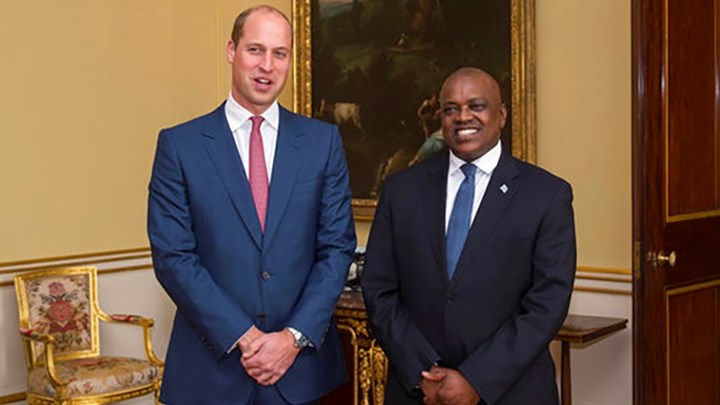
by Karen Mehall Phillips - Wednesday, October 17, 2018

The fact that hunting is conservation made big news this week, this time in Botswana and the United Kingdom as the country’s President Mokgweetsi Masisi announced Prince William, the Duke of Cambridge and second in line to the British throne, has recognized the conservation case for hunting elephants. The two met privately last week during an international conference on the illegal trafficking of wildlife, where the duke spoke of his concern that elephants and rhinos could be extinct by the time his children were in their 20s.
Masisi’s announcement comes as his country continues to struggle with excessive populations of elephants that are devastating entire communities, thanks to the country’s elephant hunting ban that was put in place by a previous administration in 2014. As this NRA website has noted, Botswana currently has approximately 130,000 to 200,000 individual elephants, accounting for a third of the elephants continentwide. Masisi told the London daily national newspaper The Times that the Duke of Cambridge privately recognized the conservation case for hunting in Botswana and the return of elephant trophy hunting specifically because it could help to conserve threatened species—a fact we hunter-conservationists have tried to explain to the general public for years. Hunters’ dollars also fund anti-poaching efforts, which are critical in light of the 87 elephants that were poached near a Botswana wildlife elephant sanctuary last month.
In an interview with The Times, Masisi explained, “We do not want to come across as loving to kill animals. We are loving to protect our people. We are loving our property.” Emphasizing his point, he added, “We are just being rational in the same way any Brit would if you had 100,000 elephants marauding over the UK. If you want to test it out we can give you only 500. I bet you'd be screaming.”
Recognizing the fact that hunting is conservation comes on the heels of a key Department of the Interior (DOI) meeting held in the United States last month. Animal rights extremists should have been present as DOI Secretary Ryan Zinke met with his International Wildlife Conservation Committee (IWCC) in Virginia, Sept. 25-26, as visitors from several African countries shared firsthand accounts explaining why their hunting bans must be lifted. Present for the meeting was the NRA Institute for Legislative Action’s Director of Hunting Policy Erica Rhoad, who was named to the council to serve as part of Secretary Zinke’s advisory team alongside other leaders within the collective hunting and conservation community. The IWCC focuses on increasing public awareness domestically regarding conservation, wildlife law enforcement and the tremendous economic benefits resulting from U.S. sportsmen who travel abroad to hunt. (Note that NRA-ILA Executive Director Chris Cox and NRA Hunters’ Leadership Forum Co-Chair Trig French were named to Secretary Zinke’s domestic counterpart, the Hunting and Shooting Sports Conservation Council, which advises on the establishment and implementation of existing and proposed policies impacting wildlife habitat and conservation.)
“Legal, regulated, community-based hunting in Africa funds counter-poaching efforts, provides much-needed protein for local families and helps patrol areas outside of game parks that would otherwise be open for poachers to run rampant,” explained Rhoad, in acknowledging the tremendous impact of hunters and hunting. “It's great to see the Duke of Cambridge acknowledge this and hopefully it will lead to the legalization of regulated hunting in Botswana.”
Maybe with high-profile people such as the Duke of Cambridge now joining in to promote hunting as a conservation solution both here and abroad, the collective hunting community can make real headway in making sure wildlife thrives into the future. As for Africa, this level of support could not come at a better time as anti-hunting, animal rights extremists continue to dismiss hunting’s crucial role in wildlife conservation and ignore the ability of Africans to manage their own wildlife.
E-mail your comments/questions about this site to:
[email protected]
Proudly supported by The NRA Foundation and Friends of NRA fundraising.
